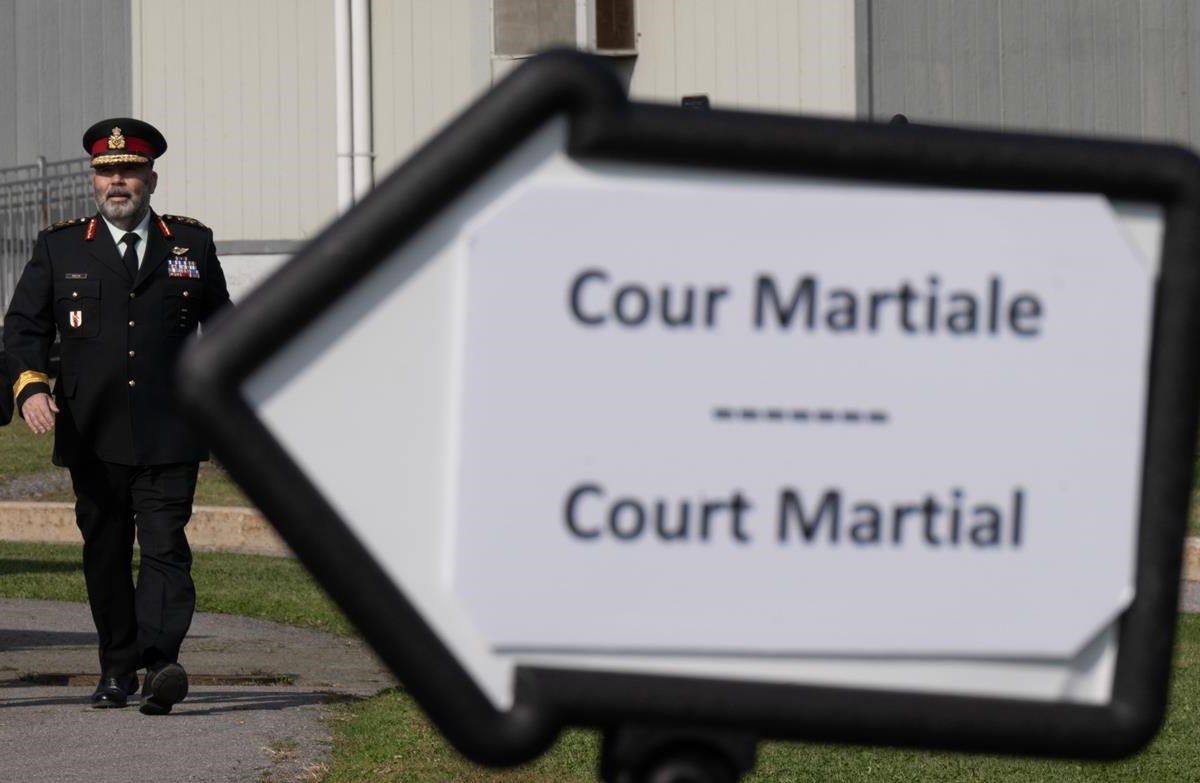- Reaction score
- 19,203
- Points
- 1,160
Just a couple of points from the above.
1 There is no statute of limitations respecting criminal charges. There is a judicial time limitation for the time from when charges are laid to when the case is heard.
2 Military prosecutors are supervised by the Director of Military Prosecutions (DMP). Like any lawyer, unprofessional conduct is reviewable by the civilian law societies that each individual military prosecutor is licensed by.
3. Charges essentially originate out of the chain of command and/or police investigations and, when laying a charge legal advice from a legal officer is required. Once laid, a charge destined for a court martial is "referred" to the DMP where it is reviewed. The DMP then "prefers" the charge or "prefers" any other charge disclosed by the evidence. DMP may also decide not to "prefer" a charge and may subsequently withdraw a "preferred" charge. Accordingly the charges which appear before the court martial are those approved of, or drafted by, the DMP's office.
4. The test that any Canadian prosecutor must meet in bringing charges before a court is that "a prosecution should not be undertaken unless there is a reasonable prospect of conviction and the prosecution would best serve the public interest." Essentially this also means that if during the course of a prosecution the test can no longer be met, then the charge should be withdrawn.

1 There is no statute of limitations respecting criminal charges. There is a judicial time limitation for the time from when charges are laid to when the case is heard.
2 Military prosecutors are supervised by the Director of Military Prosecutions (DMP). Like any lawyer, unprofessional conduct is reviewable by the civilian law societies that each individual military prosecutor is licensed by.
3. Charges essentially originate out of the chain of command and/or police investigations and, when laying a charge legal advice from a legal officer is required. Once laid, a charge destined for a court martial is "referred" to the DMP where it is reviewed. The DMP then "prefers" the charge or "prefers" any other charge disclosed by the evidence. DMP may also decide not to "prefer" a charge and may subsequently withdraw a "preferred" charge. Accordingly the charges which appear before the court martial are those approved of, or drafted by, the DMP's office.
4. The test that any Canadian prosecutor must meet in bringing charges before a court is that "a prosecution should not be undertaken unless there is a reasonable prospect of conviction and the prosecution would best serve the public interest." Essentially this also means that if during the course of a prosecution the test can no longer be met, then the charge should be withdrawn.




